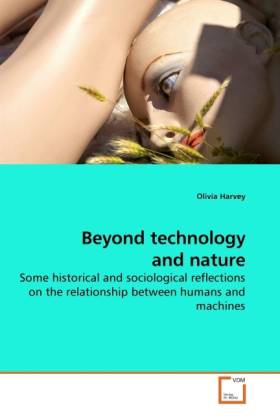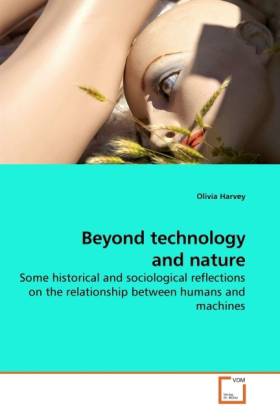
Je cadeautjes zeker op tijd in huis hebben voor de feestdagen? Kom langs in onze winkels en vind het perfecte geschenk!
- Afhalen na 1 uur in een winkel met voorraad
- Gratis thuislevering in België vanaf € 30
- Ruim aanbod met 7 miljoen producten
Je cadeautjes zeker op tijd in huis hebben voor de feestdagen? Kom langs in onze winkels en vind het perfecte geschenk!
- Afhalen na 1 uur in een winkel met voorraad
- Gratis thuislevering in België vanaf € 30
- Ruim aanbod met 7 miljoen producten
Zoeken
Beyond technology and nature
Some historical and sociological reflections on the relationship between humans and machines
Olivia Harvey
Paperback | Engels
€ 110,45
+ 220 punten
Omschrijving
Contemporary culture abounds with stories about how new technologies are radically altering human existence. In many respects it seems intuitively obvious that there is nothing new in this, and that new techniques for doing things change social relationships. Yet there is something strange about the most recent variations of how the social impact of new technologies are understood. New biotechnologies in particular are argued to have changed our daily lives so much so that what we take as the most fundamental features of human experience can no longer be assumed. The argument that new technologies have radical social consequences insists that the human subject is undergoing a fundamental transformation into something entirely different: the cyborg or posthuman. This book offers an exploration of some of the assumptions that underpin contemporary accounts of new technologies and their presumed impact on human experience.
Specificaties
Betrokkenen
- Auteur(s):
- Uitgeverij:
Inhoud
- Aantal bladzijden:
- 208
- Taal:
- Engels
Eigenschappen
- Productcode (EAN):
- 9783639232844
- Verschijningsdatum:
- 27/01/2010
- Uitvoering:
- Paperback
- Afmetingen:
- 152 mm x 229 mm
- Gewicht:
- 313 g

Alleen bij Standaard Boekhandel
+ 220 punten op je klantenkaart van Standaard Boekhandel
Beoordelingen
We publiceren alleen reviews die voldoen aan de voorwaarden voor reviews. Bekijk onze voorwaarden voor reviews.









